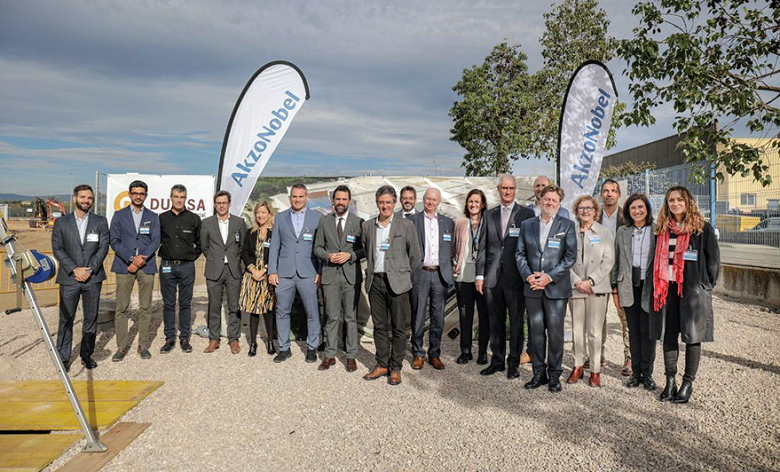AkzoNobel to Build New Metal Packaging Plant in Barcelona

It is investing 32 million euros in the construction of the plant and the creation of 40 jobs for its operation
Industrial coatings company AkzoNobel has begun construction of a new plant at its headquarters in Vilafranca del Penedès (Barcelona). The new plant will produce bisphenol-free coatings for the metal packaging industry in EMEA (Europe, Middle East and Africa).
The Dutch company company will invest 32 million euros in the plant, which will be equipped with advanced automation and designed with high eco-efficiency standards. This will help the company meet its energy and material efficiency targets. The start-up is scheduled for mid-2025 and will create around 40 jobs.
Industry need
Jim Kavanagh, Director of AkzoNobel’s industrial coatings business, said the new plant will allow the company to meet an important need in the packaging industry: “The Vilafranca plant will enable us to offer state-of-the-art products to every customer and country in EMEA, meeting the strictest bisphenol regulations in Europe. The investment is in line with our belief that bisphenols are no longer necessary to produce safe food contact coatings in the metal packaging industry.”
The use of bisphenol-free, styrene-free and PFAS-free materials is in line with the requirements of the European Food Safety Authority (EFSA) and the US Food and Drug Administration (FDA). AkzoNobel has just launched two new products that meet these new requirements and that will be manufactured at the Catalan site.
New products
The Accelstyle range was created in AkzoNobel’s packaging coatings division to encompass the company’s new bisphenol-, styrene- and PFAS-free products. The first is Accelshield 700, which will be launched in May 2023 for the internal coating of beverage can lids.
To coincide with the announcement of the new plant, the company also launched two new coating solutions for metal packaging. Kavanagh explained, “Accelstyle 100 and 200 can be seamlessly integrated into existing production processes, allowing can makers to move to coatings that are free of certain key materials while remaining as economically viable as possible.”
Commenting on the benefits of the new bisphenol-free products to be produced at Vilafranca, Kavanagh emphasised that “they have a lower carbon footprint compared to what we were supplying before. For example, the carbon footprint of the can interior products that we will produce in the new facilities will be 26% lower than our previous offering, which was epoxy-based. And it’s important to note that bisphenol-free metal packaging is not only sustainable, but also meets consumer expectations for greener packaging.”
Photo: AkzoNobel




